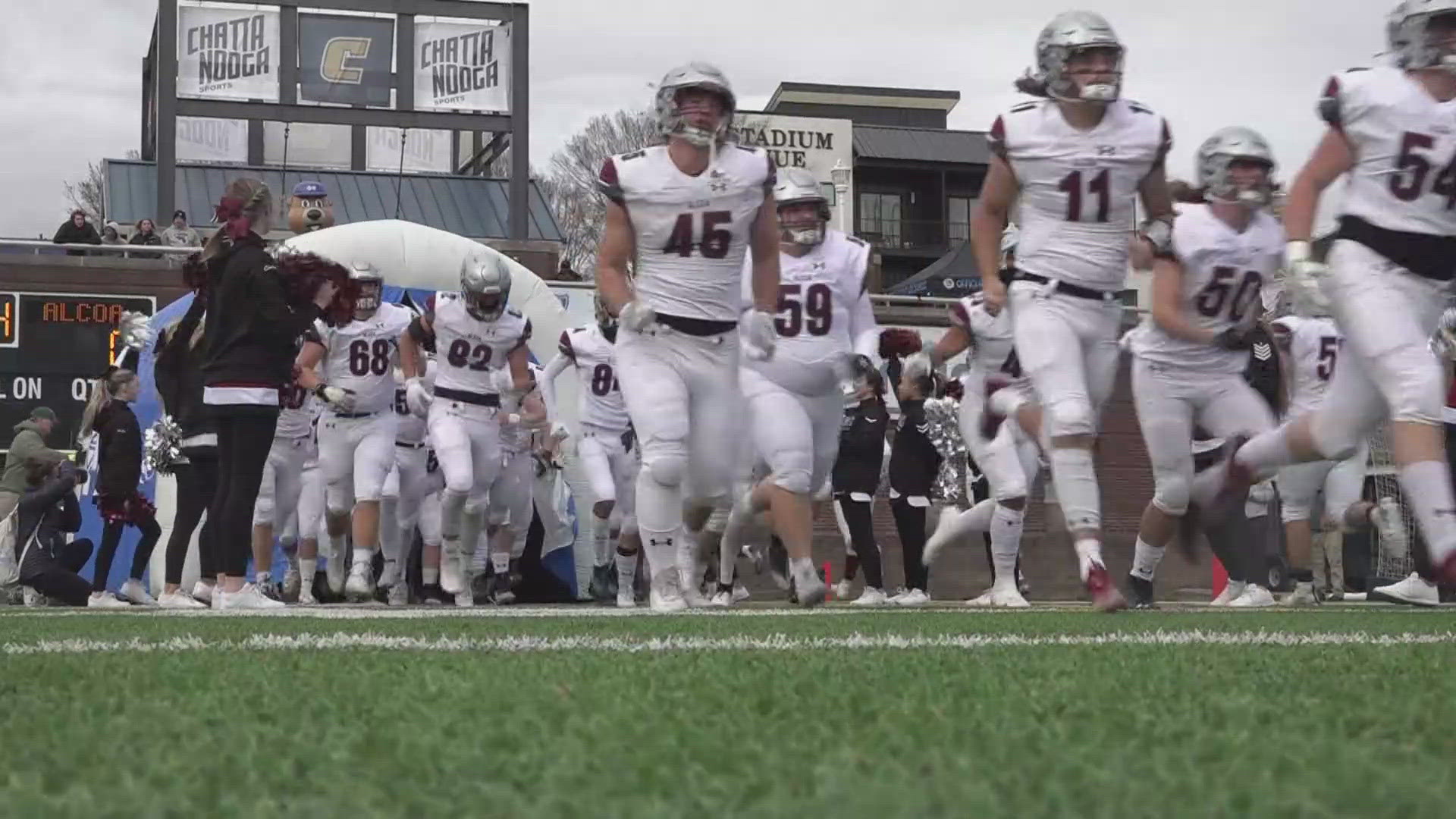KNOXVILLE, Tenn. — The state of Tennessee passed a law allowing the monetization of name, image and likeness at the high school level in December 2022, only a year and a half after the state approved NIL at the college level.
Lakeway Christian multi-sport athlete Shajai Jackson was the first-ever high school athlete to receive an NIL deal when he partnered with Lakeway Auto the same day the law was passed.
Jackson was surprised that NIL at the high school level was a reality and that he secured a deal.
"'You're high school kids,' that's what everyone says. 'You're younger, you don't deserve it,'" Jackson said. "As a high schooler getting that money, I feel like a pro almost. You're getting paid just to do your sport or be good at a sport. It just amazes me that high schoolers are getting paid."
Local businesses like D1 Training in Hardin Valley were also surprised to hear about the law getting passed, but they tried to get involved in the early stages. Casey Beaman, who is the vice president of community relations and marketing at D1, said NIL is a way for students to get some financial relief while balancing a busy schedule.
"These kids are full-time athletes," Beaman said. "They're giving their all in the classroom, and afterwards they're hitting the field. They are putting all their extra time into honing their craft and being the best athletes they can, they don't have time to get a job."
Beaman said the types of deals vary between D1 Training and its high school partners, and it depends on the return on investment you think an athlete will bring your business.
"There are some deals I've worked with in the past that are financial, there are some that are commission-based where there are incentives involved and others are just sort of a trade deal where we work out a deal with their training," Beaman said. "It really is different for each different athlete."
Bearden graduate and Tennessee baseball player Brooks Wright partnered with D1 as a senior. He said his connection with UT definitely helped him get a partnership, and the partnership itself was a great way to get more serious about weight training.
Wright said he would get about $100 a month from D1 and would have to go work out at least twice a week as part of the partnership, and his end of the deal was not much to manage at all.
"All of that for a schedule of social media posting, Instagram stories or posts, hashtags, stuff like that," Wright said.
Despite Jackson getting an NIL deal on day one and D1 Training partnering with a handful of high school athletes since it became legal in Tennessee, the landscape has not really blown up for high schoolers. Many parties involved say the lack of growth has to do in some part to the fact that the high schools themselves cannot be involved in the deals in any way.
"That definitely does hurt, because so many of the coaches know the better athletes, so if that was something they allowed the schools to work with them on, it absolutely would help some of those kids," Beaman said. "In turn it would help businesses, because they would get in front of the right kids."
"I wear a uniform. Most of the time that I go to a place, I have a school uniform on, I have my school logo on," Jackson said. "You're associated with the school, so why can't the school be associated with you?"
Wright has only been exposed to the NIL landscape at the college level for a couple of months since enrolling at Tennessee, but he said it's clear that the gap between high school NIL and college NIL is substantial.
"It's a huge step," Wright said. "It would take a pretty good bit for high school to catch up to that."
The other side of this argument is that the governing bodies at the high school level like the TSSAA, or even school administrators, feel as though allowing the high schools to be involved in NIL dealings may lead to the partnerships being abused as recruiting tactics. The advice from the business side is that, if you can't fall back on your school for name recognition, find a way to make your own presence marketable.
"Come in and say here's a plan, here's what I'm looking for and here's a way I really can help you get an ROI on this deal," Beaman said. "If you do that, a lot of businesses are going to see the value in it and that's going to increase their profitability."
Even though high school deals may not be lucrative, a benefit to offering NIL at a lower level means athletes who do go on to play college athletics have some prior knowledge of what it's like.
"Having some previous background knowledge of how it works, that will play in my benefit," Wright said. "I'm not going in blind."
Beaman also notes that an increase in NIL deals at the high school level will also require businesses themselves to be more receptive to partnering with high school athletes.
"It is a great marketing resource," Beaman said. "People hire professional influencers all the time, but they haven't really considered that high school athletes are a much more economical way of doing that right now."

